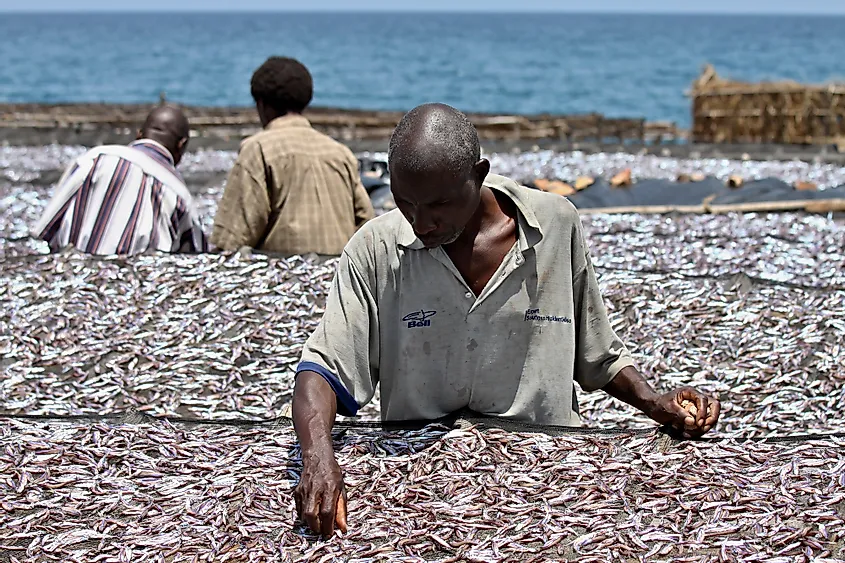Africa Community Impact Organization recognizes lake’s fundamental role in ensuring the health of our planet and the wellbeing of mankind
Our goal is to improve local people’s quality of life while enhancing management and usage of coastal and marine ecosystems to protect marine biodiversity for future generations in Democratic Republic of Congo.

While nearly half of the world’s human population lives within 50 miles of a coast, all of us depend on the ocean and the resources it provides, whether it be for the food we eat or the oxygen we breathe. The ocean provides invaluable benefits and services: Here without any further ado, is the top 10
Food: More than 3.5 billion people depend on the ocean and Lakes for their primary source of food. Fish supply the greatest percentage of the world’s protein consumed by humans. Unfortunately, per capita, demand for seafood is increasing around the globe, putting more and more pressure on an already fragile ecosystem.
Fresh Water: The oceans and lakes of the world play a major role in the fresh water cycle. It forms the clouds that bring us rain, which replenish our freshwater supplies.
Climate Regulation: Oceans strongly affect climate and weather patterns, transferring heat and moderating carbon dioxide levels in the atmosphere.
Renewable Energy: Our oceans or lakes are an invaluable and endless source of renewable, clean energy; from tides and ocean currents to the powerful waves. We should be harnessing this energy more frequently and more effectively.
Carbon Sink: The ocean plays a vital role in the Earth’s carbon cycle, removing carbon from the atmosphere and the upper ocean layers. Marine plants also act as carbon sinks by sequestering carbon in seabed sediments. Through this natural storage process, it provides a climate regulation service.
The air we breathe: Not only do ocean plants produce half of the world’s oxygen, but the ocean also acts as an “air-filtering device” by absorbing nearly one-third of human-caused carbon dioxide emissions.
Transportation and commerce: Ocean and lakes-bound shipping accounts for more than 90 percent of global trade.
Economy: Ocean-related industries such as fishing, tourism, transportation, provide indispensable revenue and in the US alone, more than $128 billion in GDP annually results from ocean tourism, recreation and living resources.
Medicine: Have a peak at the labels in your bathroom cabinet and you will be surprised at the plethora of Biomedical products derived from marine plant and animal sources. Marine ingredients have numerous medicinal and health benefits.
Recreation and restoration: The seemingly intangible benefits derived from spending time at the seaside are largely immeasurable, as they seem to just seep into us through osmosis. We all know, for example, how therapeutic a walk on the beach or a swim in the ocean is for the body, mind and soul…
Most of us take the ocean for granted, as it seems so steady, omnipresent and indestructible. I think we judge it by its size – that it is just too big to get hurt. But do not be fooled, the intricate workings that keep the ocean and our planet in a perfect symbiotic balance, is reaching its tipping point. Be grateful for all the oceans do for us and let’s show it some respect in turn. Protect and Preserve.
